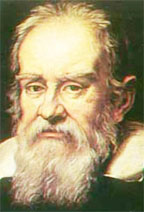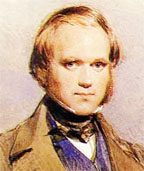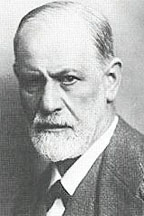In 2009 the world is celebrating the 200th anniversary of the birth of Charles Darwin, who, rather like Galileo and Sigmund Freud, is one of the most influential names in the history of scientific discovery. Each changed the world through his particular field of endeavour. Their research and innovation made the most important contributions to what was known about the universe, man’s environment, state of being and existence. It brought into question all that had been thought to be true while reshaping and virtually founding the way their respective scientific disciplines would develop in the future. Nothing was the same after their sensational revelations.

Yet, there are other ways in which the three are alike. Through the same earth-shaking work, each was as controversial as he was influential and acclaimed. Galileo shattered and discredited the officially established and accepted common knowledge of the structure of the universe in his era. Darwin brought to light an entirely new and even outrageous understanding of the origins and history of man himself, and of his natural environment. He re-made the history of plants and animals, introduced the concept of an ecosystem, and founded modern botany, zoology, environmental science and radically affected even geography and medicine. Freud unearthed shocking truths about the behaviour and the mind of man, his relationship with his social and material environment and founded modern psychology.
But while the controversy surrounding Galileo is a factor of history and was more confined to the time in which he lived, Darwin and Freud remain controversial names to this day because of the very theories with which they revolutionised scientific knowledge. Galileo’s discoveries which are taken for granted as plain fact today, were controversial largely because of the time in which he lived. Darwin and Freud shake the foundations of belief and sensitivities even unto the present generations who benefit from the contributions made by their research.

The comparisons get increasingly interesting. The conflicts that confronted Galileo were mainly because of religious belief. His discoveries about the place of the earth in the universe flew in the face of Roman Catholic belief. Darwin’s theory of natural selection, commonly known as evolution, still threatens the complacency of fundamentalist Christian belief in a creation theory, although this conflict partly arises from a misunderstanding of both.
In addition to religion, popular belief and these same misunderstandings are further reasons for controversy. It is commonly believed that Darwin asserts that human beings are the descendants of apes or monkeys, but that is not what he said. What is more accurate is his hypothesis that both homo sapiens and anthropoids evolved from the same genus. Similarly, the popular understanding of Freudian theory is that every human action is controlled by sexual desire or even that every man has a desire for sexual relations with his mother and a hatred of his father because he has that privilege. But that is a popular, sensational misunderstanding of principles which are far more complex and technical (the pleasure principle/the Oedipuis complex) and have more to do with the subconscious.

Yet another interesting feature of these scientists is the considerable interest taken in them and their work by literature and the arts. Of the three, Freud’s relationship to literature is the deepest. His theories have been found highly relevant and have been borrowed or appropriated by literature, while one of them takes its name and illustrative characteristics from a famous work of drama. Darwin’s theories have inspired writers who have given them social contexts, integrated them into important human themes. Darwin is also the source of the title and concept of another famous stage play. The life of struggle and achievement and the experience of Galileo were major inspirations for one of the greatest playwrights and is the subject of yet another outstanding work of the theatre.
Further, all these works and to some extent the theories that shape them, draw strength from the controversies that accompany them. Freud turned to literature to find a name and archetype for his controversial Oedipus complex, theory of neurosis and psychoanalysis. Literary and critical theory found substance and life in these concepts with a lively debate between disciples and critics. The plays inspired by Galileo and Darwin make full use of the conflicts and contradictions taken from them and the prevailing sentiments in the historical contexts of their work.
The work of Charles Darwin (1809-1888) is a major influence and underpins the main themes of one of the great plays in American drama. The Hairy Ape (1922) by Nobel Laureate and Pulitzer Prize Winner Eugene O’Neill is one of the influential works in modern drama in the Americas, credited with establishing the modern theatre of realism on this side of the world. It was written at a time when the world had not yet recovered from the impact of Darwin’s Origin of the Species (1859) and its intellectual upheavals. “The hairy ape” is an obvious Darwinian derivative used by O’Neill to define the hero of the play who saw himself as a kind of victim of evolution and ended up a misfit in the modern world.
It is a political play about the way the wealthy class build empires on the labour of the working class who still suffer in an inferno at the very bottom of the industrial, social and evolutionary ladder. The dramatist draws from Darwin, comparing the biological and environmental divisions to the hierarchical class divisions, suggesting that the workers have been left behind in the evolution of an industrial and bourgeois society. The theory of natural selection prevails and the playwright even exploits the limited popular understanding of the theory.
A common version of it is “survival of the fittest” which conjures up a violent struggle in which the strongest survive by their defeat of the weakest, an erroneous interpretation of Darwin. A better understanding is that different species exist in changing environments and have to adapt accordingly. During the course of evolution they will undergo changes which equip them for existence in the surrounding conditions. But those species that are unable to do this will eventually become extinct.
In the play the hero is such a member of the working class. He is physically powerful but lacks intellectual capacity. In his limited understanding of the social order he compares himself to a strong hairy ape and believes that violence is the way to strike out at the bourgeoise and win justice for his class. But he lacks the necessary adjustments for survival in the hostile capitalist New York society and is destroyed.
Ironically at the end of the play he climbs into the ape’s cage at the zoo and is killed by his ‘ancestral brother.’ The working class is a misfit in the new industrial environment in which it is not equipped to survive.
Galileo Galilei (1564-1642) was the Italian physicist who developed further and confirmed findings which started with Copernicus and started a scientific revolution. However, the church opposed the heliocentric view of the universe which Galileo was promoting, and eventually after a trial in Rome he was forced to recant his views and was placed under house arrest.
Bertold Brecht wrote the play Life of Galileo between 1937 and 1939 but revised and completed it between 1945 and 1947. He not only dramatised the struggle of the times and its social issues, but the oppressive dictates of the Papal government. In bringing these to life he created a very human Galileo with personal weaknesses. His first passion is advanced scientific investigation at the expense of performing ordinary jobs that would earn an income to support his family. He is also a glutton and seems to display a certain brand of cowardice when he capitulates to the church’s demand that he denounce his own published theories.
However, these are dramatic devices to strengthen his portrayal of a heroic character who triumphs over the prevailing restrictions for the advancement of his work. His capitulation is strategic because were he to be executed for heresy that would end the work that he knows is so important it is needed by the world. He presents the telescope to the officials pretending it is a new invention to satisfy their limited demands. But in actuality he improves the telescope and uses it to assist in the real work he is secretly carrying on. Brecht gives a drama of heroic personal sacrifice.
Sigmund Freud’s “Oedipus complex” takes its name from the Greek tragedy of Oedipus otherwise known as Oedipus Rex (Oedipus the King) by Sophocles, one of the three great Greek tragedians. In addition, Freudian psychoanalysis and work on the subconscious are very widely used in literature and critical theory.





